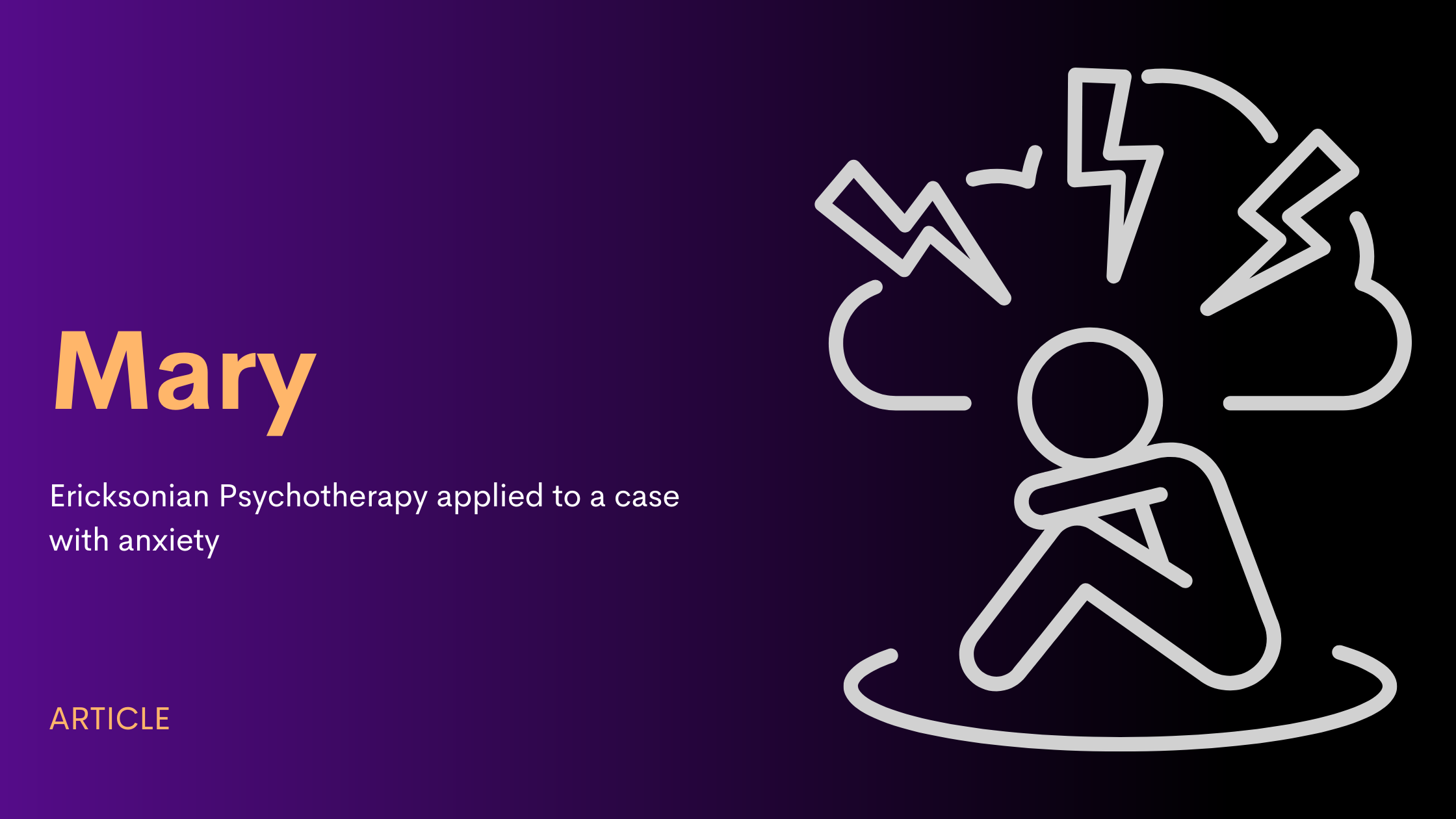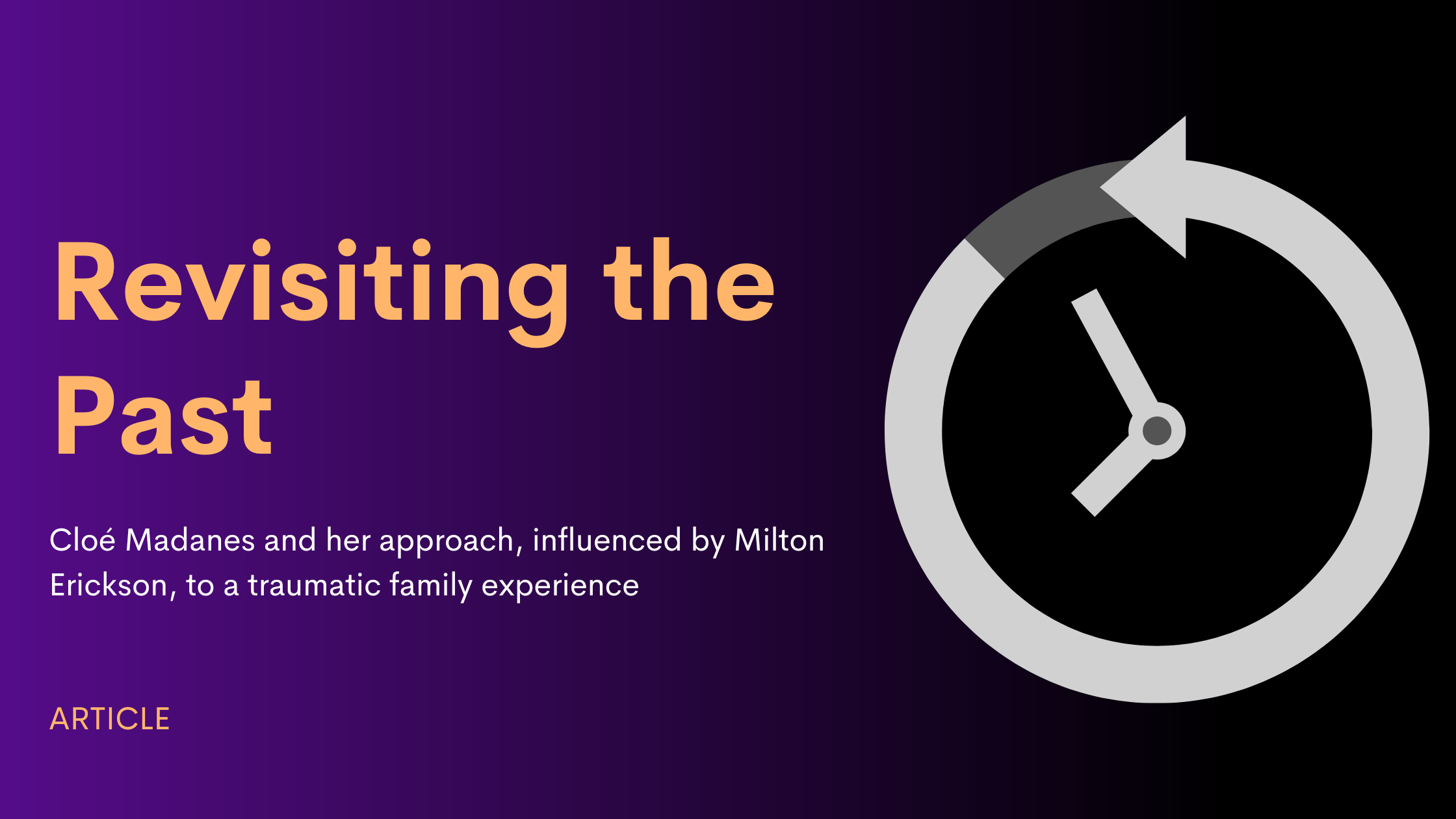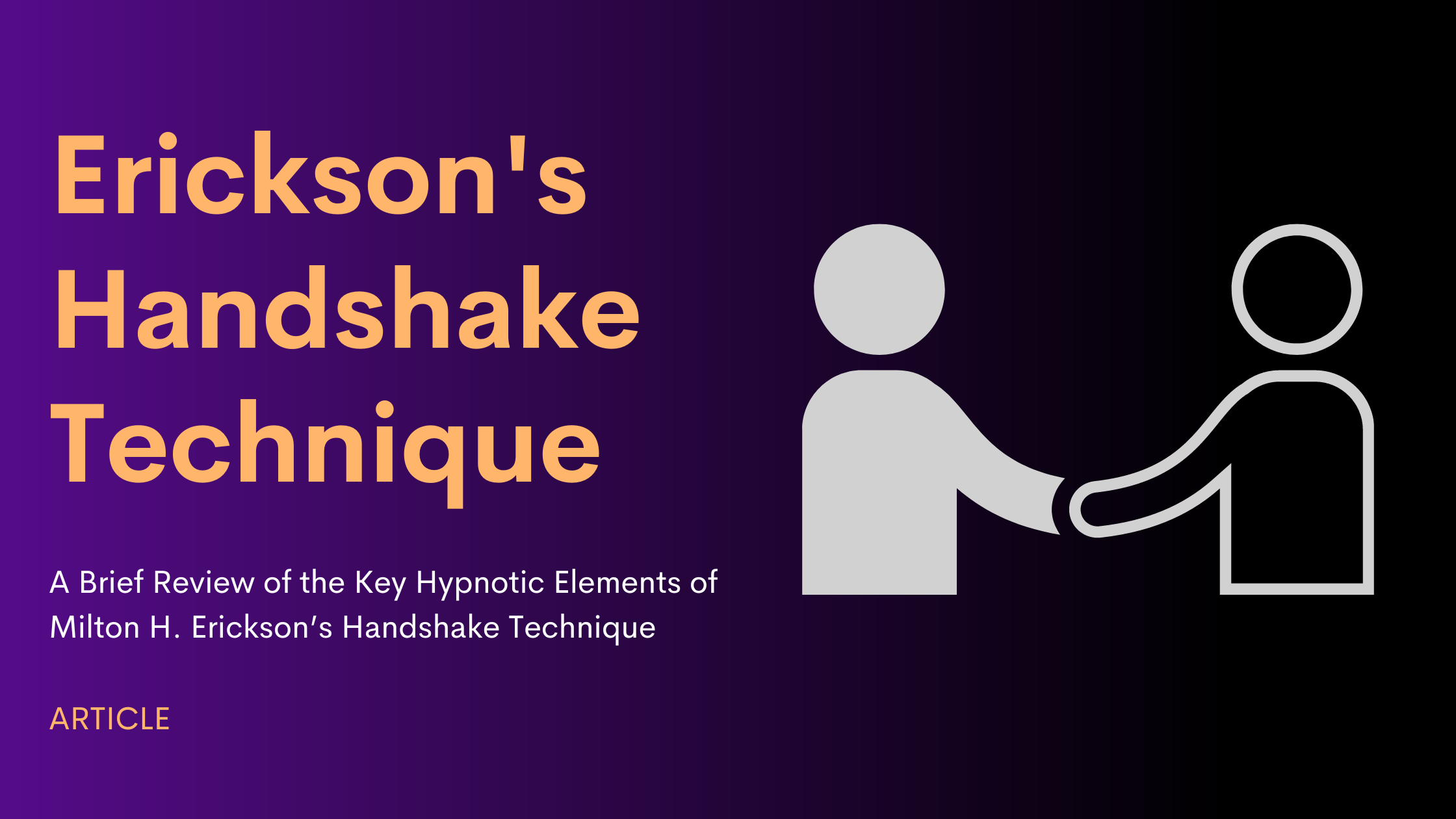
Where storytelling and creative learning come together
Verbal Implication
Implication is one of the most common ways that we unconsciously make meaning out of events in everyday life. A speaker’s statement implies something that the listener infers. Erickson used implication extensively and deliberately, as shown in the following examples (some paraphrased) with the implication in parentheses: …
Unseen Erickson
Sarah Clinebell, who has been working on the Archives since June 2022, has supplied us with a folder named “Cruise Folder, January 4 – 18, 1958.” The contents include details of the cruise, correspondence setting up the lecture series, a brochure about the cruise vessel, excursions available at cruise stops, correspondence with Dr. Louis Mars (the contact person for the Port-au-Prince stay) an article regarding setting up of the first psychiatric hospital in Haiti, correspondence regarding Erickson’s purchase of turtle specimens, and a Port-au-Prince shopkeeper’s purchase of a bola.
Mary
Mary was a 44-year-old, white female who was referred to me for pervasive, lifetime anxiety. Mary remembered frequent events of feeling fearful and alone as a child with her negative, gloom-and-doom father and with her controlling and abusive first husband whom she had divorced fifteen years earlier. She was unable to express any opinions that disagreed with her father’s. While her current marriage was to a very supportive man, it was a highly regimented and structured relationship with little spontaneity and fun.
Instant Change
To be in Milton Erickson’s presence was to invite him to teach. And teach he did! Almost everyone who spent time with him can remember precisely the words he said that changed life forevermore. Even people who read his words often comment that “his voice goes with them.” I am fortunate that when I think of my father, I vividly remember many times when just a few words changed me instantly. In this case, Dad and a family friend, Margaret Mead, worked in tandem. Although the event and words are crystal clear, I don’t remember who said what-they complimented each other beautifully.
Age Progression
A 28-year-old male physician, who had done well in medical school in Japan, began working on a doctoral thesis at the surgery department of a national university that was not his alma mater. He also was working at the hospital where his father was a staff physician. He started having difficulties with his doctoral thesis. As a consequence, he began to suffer from severe insomnia. He decided to treat his own insomnia by taking prescription sleeping pills (methaqualone), a type…
Revisiting the Past
The voice of the man on the phone was cracked and old. He and his wife were in their seventies and for 20 years the family had not been able to have a Christmas, a birthday, or any celebration together. There were four children and it was the enmity and resentment from Melissa, now 40- years old, to Michael, now 45, that precluded any type of family gathering. Melissa had announced, at age 20, that Michael had sexually molested her from the time she was ten until she was fourteen. Ever since then the family had been torn apart.
About Milton Erickson
As part of their therapy, my father would often give his patients “jobs” to do. The jobs were highly varied. Often one could easily see how the assigned job was a necessary first step for a patient to take in order to heal his or her problem. For example, over the years, my father had several women patients who believed they were so homely no man would ever want to marry them. My father had one woman go to the bus station (at the time, the major port of entry into Phoenix) and for three days meet all the arriving buses. She was instructed to watch for people more homely than herself and observe if they had a husband either greeting them or traveling with them. Of course, she found many and was very happy at her next appointment.
Think Fast
An athletically built young man in his mid-20s, neatly attired in a business suit, consulted me to deal with “rage issues,” “depression,” and a desire to get to the “root” of his relationship with his mother. He told me that he had been raised by a single mother who was alternately extremely dependent upon him, and then physically and emotionally absent. They had suffered poverty when he was a child, and he was determined to continue to rise financially in the world as an adult.
Lydia’s Dream
This is about a dream and an image. The client, Lydia, is dreaming about her youth in Mexico and when she tries to talk, worms come out of her mouth instead of words. In the dream, Lydia’s father sits and chats with his mother, Lydia’s abuela. Mother and son have sought refuge from the implacable midday Jalisco sun by setting their chairs in the shade, close to the doors that open into the bedroom where Lydia, her brother, and her sister are having their siesta.
EMDR Summarized
“From 0 to 10, with 10 being high, how would you rate your current level of distress?” With his rating, the client is asked to keep the most distressing picture of his presenting event or memory in mind; then, to identify where the feeling lodges in his body; and lastly, to identify his associated negative cognitions that go with the problem–such as “I’m helpless,” or “It’s my fault.” Continuing with his images, feelings, and thoughts, he is kept …
Diego’s Dream
It was September 2001. Diego, a young boy, told his mom that he was not hungry because his tummy was full. All of a sudden, he doubled over in pain. Upon medical examination, they discovered Diego had a five-pound tumor beside his stomach. The tumor was a Rabdomiosarcoma, an aggressive, fast-growing form of sarcoma. Diego’s life changed dramatically. No more school, no friends.
The Critical Inner Voice
The critical inner voice is made up of a series of negative thoughts and attitudes toward self and others, which is at the core of a person’s maladaptive behavior. It can be conceptualized as the language of a defensive process that is both hostile and cynical. The voice is not limited to cognition, attitudes, and beliefs; it is also closely associated with varying degrees of anger, sadness, shame, and other primary emotions.
Erickson’s Handshake Technique
Milton H. Erickson was no doubt a master of masters in inducing hypnotic responses for clinical purposes. Dr. Erickson was instrumental in developing a number of indirect hypnotic techniques and strategies, including interpersonal and nonverbal or pantomime tactics (Erickson, 1958, 1964, 1966; Haley, 1967).
Magical Moments with Milton
The very first time we met with Milton Erickson there were just five people present: Three physicians and the two of us sitting with the awesome Dr. Erickson. A woman walked into the room with her husband. She wanted to be hypnotized so that she could comfortably pass a licensure examination free from the anxiety often generated by such a test.
Milton Erickson
This is a picture of Reeseville High School around the time that Milton Erickson was a student there. He graduated in June 1919 at the age of 18. Two months later he had a crippling bout of polio. Unearthed from the Erickson archives, we provide the following to illustrate the socio-cultural perspectives of Erickson. (For additional information: An Epic Life Milton Erickson, Professional Perspectives, and Epic Life II: Milton Erickson, Personal Perspectives, by Jeffrey K. Zeig, Erickson Foundation Press.)
Think Small
It was a stressful moment. A young woman sat before me trying to tell me why she had come in, a matter of vital concern to me. I was a new intern at the counseling center and had to document each client’s presenting issue. In this case, though, I was stymied. After 30 minutes, I had absolutely nothing to write. This woman was clearly grappling with a need to maintain a secret. Every sentence was unintelligible, lacked a noun or verb, and relayed virtually no information. I was getting anxious wondering what my supervisor would think about a chart note that lacked the most basic information.
When Abby Died
Frigid rain peppers hard blackened snow. You continue to season my thoughts. When I saw her in the waiting room last March I knew the lymphoma had recurred. She’d aged. Her shrunken profile barely stirred the air as she walked into my office. Undaunted, she wanted to write more of her memoir. As a Registered Poetry Therapist, I offer healing trances through spontaneous free writing and bibliotherapy, as well as hypnosis.
Tell a Story to a Story
Chapter One Dear Dr. Greenleaf, This is Angela from your class at MRI. I have a situation at home and I wanted to write to you because I sense you may be able to help me deal with it by using a story for the solution. This morning my 3 ½-year-old son walked quietly into my room with his favorite stuffed pink pig and comforting purple blanket. Instead of his normal singing, shouting, and jumping in my bed, he looked tired and sad and crawled under my blanket to cuddle with me. I asked him…
What If We Stopped Fighting Nicotine Addiction?
I begin all my treatments with the question: “What would you like to change today — and why?” The client M.T. answered, “I want to quit smoking because it’s bad for me.” (I find this is a staple answer for most people who are asked the same question.) I normally follow my question with a destabilization technique. This is intended to simultaneously create an increase in motivation to the point where the clients are almost demanding to be treated. It also brings about a state of confusion during…
Dancing With Jennifer, Dancing With Beth
Dr. Jim, a sweet-faced, middle-aged man, arrived, referred for treatment of anxiety by a previous hypnosis patient. When I ask him what form the anxiety takes, he says he is a good doctor with a healthy practice, confident in his skills and in his marriage relationship. He describes his wife, Beth, in loving terms. He wants to please her. His wife had convinced him to take dancing lessons with her so they could enjoy…





















